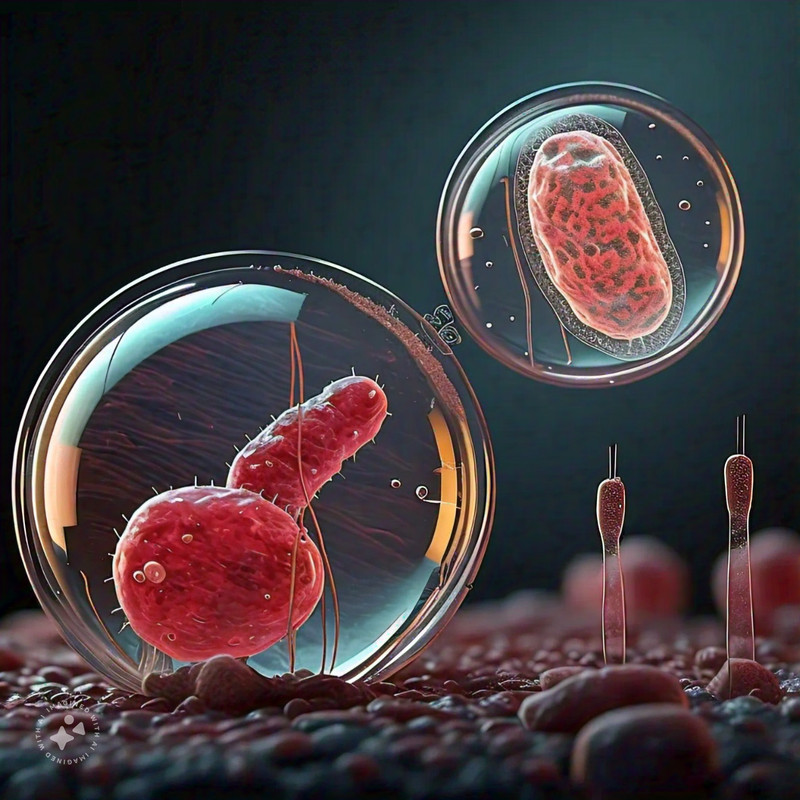· Soumya Dubey · tutorials · 3 min read
Understanding Probiotics "The Friendly Forces in Our Gut"
Dive into the science behind these beneficial bacteria and explore how they can improve your digestive health, boost your immune system, and even enhance your mental well-being.

Introduction
In today’s health-conscious world, probiotics have become a household name. These beneficial bacteria are touted for their ability to improve digestive health, boost immunity, and even enhance mental well-being. But what exactly are probiotics? How do they work? And why should you consider incorporating them into your daily routine? In this blog, we’ll dive deep into the world of probiotics, shedding light on their benefits and offering guidance on how to use them effectively.
What are Probiotics?
Probiotics are live microorganisms, primarily bacteria, which are similar to the beneficial microorganisms found naturally in the human gut. They are often referred to as “good” or “friendly” bacteria because they help keep the gut healthy by combating the effects of a poor diet, antibiotics, and stress.
The Science Behind Probiotics
The human digestive system is home to a complex community of bacteria known as the gut microbiota. This microbiota plays a crucial role in digestion, immune function, and overall health. Probiotics contribute to this microbial community, helping balance the gut flora to improve gut health and other physiological functions.
Health Benefits of Probiotics
Enhanced Digestive Health Probiotics can help prevent and treat gastrointestinal issues such as diarrhea, irritable bowel syndrome (IBS), and inflammatory bowel disease (IBD). They do this by balancing the gut microbiota, which can be disrupted by illness or antibiotic use.
Boosted Immune System By maintaining a healthy gut flora, probiotics can strengthen the immune system and reduce the incidence of respiratory and urinary tract infections.
Improved Mental Health Emerging research suggests a link between gut health and mental health. Probiotics may improve mental well-being by reducing symptoms of depression and anxiety, an aspect of the gut-brain axis.
Healthier Skin Probiotics can also impact skin health by reducing the severity of conditions like eczema and acne. This is particularly beneficial for those who suffer from chronic skin issues that don’t respond well to traditional treatments.
Choosing the Right Probiotics
Not all probiotics are the same, and finding the right type can be crucial to achieving the health benefits you seek. Probiotics are identified by their genus, species, and strain. Different strains have different effects. For example:
- Lactobacillus rhamnosus GG is highly effective for treating diarrhea.
- Bifidobacterium longum helps improve lactose tolerance.
- When choosing a probiotic supplement, it’s important to look for products with live and active bacterial cultures, and a sufficient number of CFUs (colony-forming units).
Incorporating Probiotics into Your Diet
Probiotics can be found in fermented foods such as yogurt, kefir, sauerkraut, kimchi, and kombucha. If you prefer, probiotic supplements are also available in pharmacies and health food stores. Here are a few tips for incorporating probiotics into your diet:
- Start Slow: Introducing probiotics slowly into your diet can help your body adjust without discomfort.
- Diversity: Eating a variety of probiotic-rich foods can provide multiple strains of bacteria, which can be more beneficial.
- Consistency: Regular consumption is key to maintaining the health benefits.
Conclusion
Probiotics offer a wealth of health benefits by improving gut health and enhancing various bodily functions. Whether you choose to include more fermented foods in your diet or take supplements, regular consumption of probiotics can significantly contribute to your overall well-being. Remember to consult with a healthcare provider before starting any new supplement regimen, especially if you have underlying health issues.
Embrace the power of friendly bacteria and take a step towards a healthier you!




